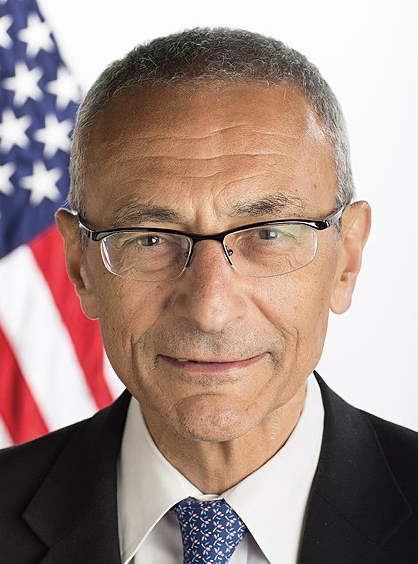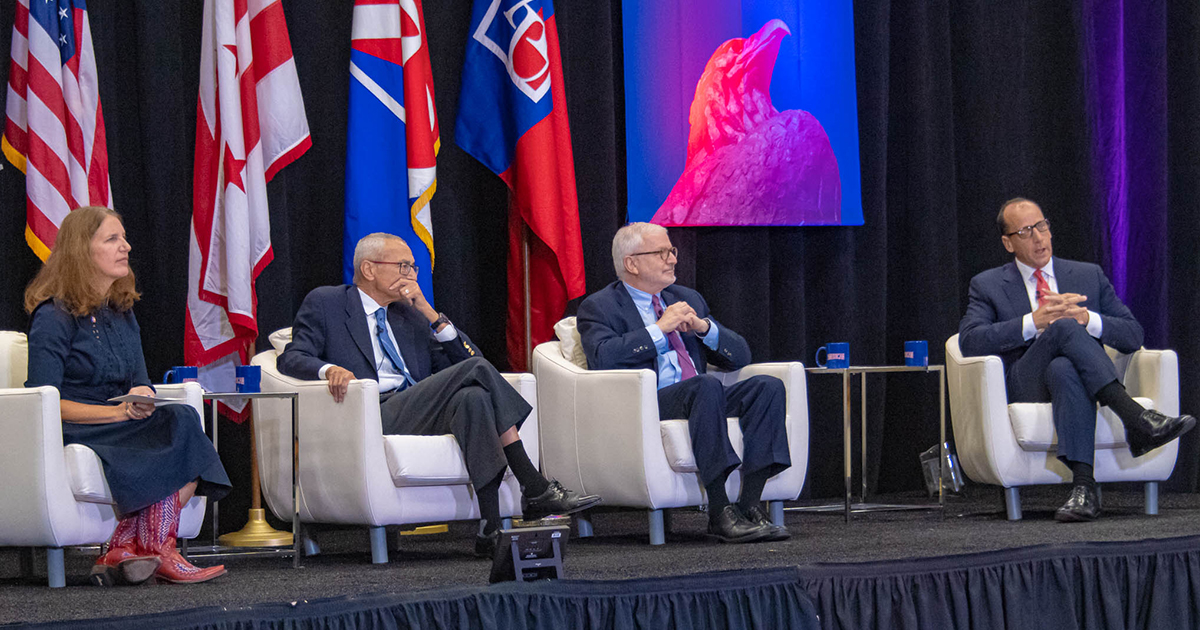
Anna Morcerf
Communications Manager
On October 8, 2022, American University president, Sylvia Burwell, moderated the Peaceful Transitions of Power: Protecting Our Democracy panel featuring the Kogod School of Business’s very own dean, Dave Marchick, whose just-released book, “Peaceful Transfer of Power: An Oral History of America’s Transitions of Power” more extensively covers the topic. Senior advisor to President Biden for green energy innovation an implementation and chief of staff to former president Bill Clinton, John Podesta, and CEO of Business Roundtable and chief of staff to former president George W. Bush, Joshua Bolten also joined the panel discussion.
A peaceful transfer of power is so important to the nation on the economic front, the national security front—on every front.”

American University President
Sylvia Burwell
“The handoff from one president to another is one of the most vulnerable periods for our country,” began Marchick. “It’s a period where our adversaries seek to take advantage of the US, and we know this actually from the transition where Bolten was outgoing chief of staff, and Podesta was the incoming transition chair for President Obama.”
“Bolten should be in the transition hall of fame because President Bush had a short transition—it was only 35 days,” continued Marchick.
The 2000 dispute in Florida regarding the 537 votes that would determine the outcome of the election in one state, which would then decide which candidate won the election led to a period of significant vulnerability for our country. This contributed to a slower start for President Bush once it came time for him to appoint senior-level officials.
Eight months after Bush took office, September 11, 2000, became one of the most devastating days in American history when two planes hit the World Trade Center in New York City.
"The 9/11 commission did an autopsy of what happened. One of the findings was that the short transition imperiled our national security because President Bush could not get all of his senior officials in place," Marchick explained. This is just one prime example of why transitions of power are so important for our country.
Bolten then recalled the night of January 19, 1993, before the Clinton inauguration, when he was a deputy assistant to President George Bush senior. “There was nothing on the walls, nothing on the desks except a few computers and telephones, nothing on the bookshelves,” explained Bolten. “The place was empty, and I thought if the American people or our adversaries could see that our government's locus and focus at this moment is absolutely empty. What a vulnerable moment for the government.”
I got a little nervous for the country, but also uplifted by it because I thought, how great is this that it’s not a government of men and women—it is a democratic government where peacefully we can have a whole new set of people occupy this space and take over governance just overnight.”

CEO of Business Roundtable
Joshua Bolten
“The worst transition in history was Buchanan to Lincoln…within a few weeks, seven states succeeded, the Buchanan government was paralyzed, half of the government sympathized with the south…so you basically have the country falling apart,” explained Marchick.
The bigger question is, what’s the second worst transition in history?”

Kogod School of Busines Dean
David Marchick
“After what occurred on January 6, it’s this one because, in the 233 years since George Washington handed the reigns to John Adams, no shots were fired, no troops were alerted, and no one died, and that’s the miracle of the US until January 6, 2021.”
President Burwell asked the panelists to zoom out 60,000 feet and tell us the one thing we need to do as a nation in terms of the health of the democracy.
The most important thing is to protect the right to vote.”

Senior Advisor to President Biden for Green Energy Innovation and Implementation
John Podesta
Watch the Full Conversation Below!
